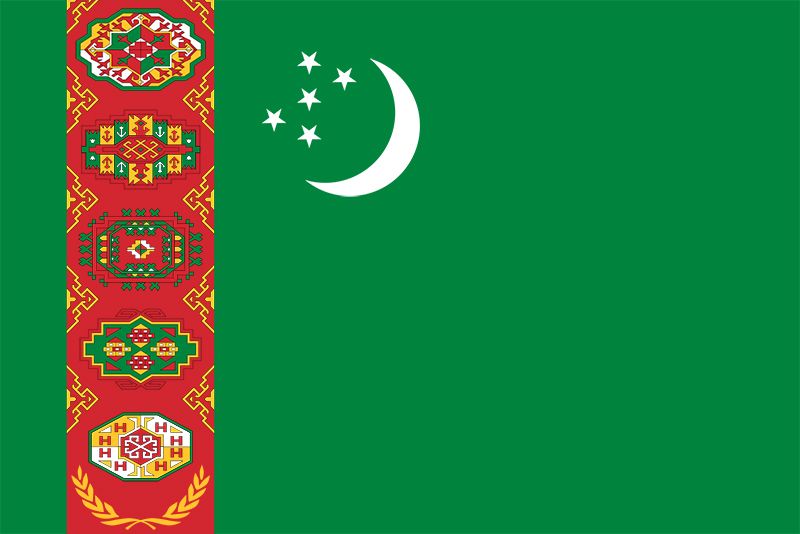flag of Turkmenistan
Our editors will review what you’ve submitted and determine whether to revise the article.

flag of Turkmenistan
national flag consisting of a green field (background) with a white crescent and five stars; near the hoist a claret (Bordeaux-red) stripe bears five carpet patterns and an olive wreath. The flag’s width-to-length ratio is 1 to 2.The Turkmen Soviet Socialist Republic, as the country was known under the communist system, adopted a version of the Soviet Red Banner in 1953 that included two horizontal light blue stripes. Following its proclamation of independence on October 27, 1991, Turkmenistan sought a new flag design, which was eventually introduced on February 19, 1992. The most striking part of the new flag is the vertical stripe of Bordeaux red on which there is an elaborate design composed of five carpet guls (motifs), respectively associated with the Salor, Tekke, Saryk, Yomut, and Chaudor tribes. The traditional patterns have for centuries been woven into the rich carpets for which the Turkmen are famous. Even in the Soviet era, the Turkmen coat of arms included a carpet.
The background of the Turkmen flag is green, a symbol of the Islamic religion. Its white crescent stands for faith in a bright future. The five stars are for the five senses, and the five points on each star are for different states of matter (liquid, solid, gas, crystal, and plasma). On February 19, 1997, the Turkmen flag was slightly modified. As a symbol of the country’s neutrality in international relations, a golden olive wreath similar to the one in the United Nations flag was added below the guls on the vertical stripe.












